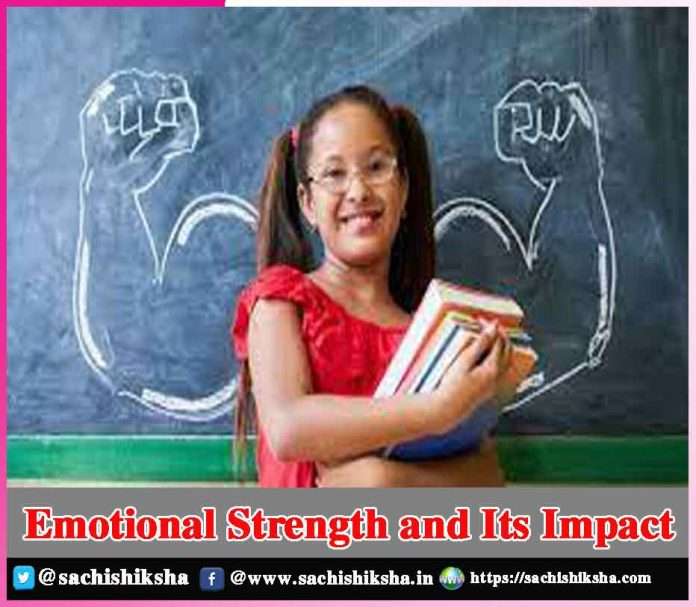Emotional Strength and Its Impact
Introduction: Something intriguing is emerging in the workplace of the twenty-first century: The more innovation we have in this technological environment, the more we streamline jobs and allow robots to take over responsibilities, and thereby recognizing the significance of hormones more precisely, emotional intelligence.
Emotional intelligence is our capability to recognize and comprehend emotions in both ourselves and other, as well as to use that information to direct our ideas and activities. People with emotional intelligence are more likely to achieve success than their competitors simply because they get together well with one another and are more emphatic and caring. As a result, studying further about emotional intelligence is worthwhile.
Also Read:
- Positive Parenting During the Pandemic
- Good Parenting Tips: Effective Ways To Improve Parenting Skills
- New Parents Learning the Parenting Business
- Say No & Be Happy
Table of Contents
Emotional Intelligence:

Emotions & Intelligence:
It’s understandable if emotional intelligence seems like an oxymoron to oneself. People often consider their emotions and intelligence to be distinct entities. But, when they are combined as emotional intelligence, it is basically a brand-new way of being smart since it is “the power to be mindful of, regulate, and express one’s emotions, as well as to conduct social interactions prudently and sensitively.”
Self-awareness
Humans are self-conscious as we become mindful of our own talents and flaws, as well as the way we act to circumstances and individuals. This data can assist us in setting limits and managing our relationships with others in a genuine manner. Furthermore, knowing ourselves well allows us to be more excellent communicators since we are able to help understand the other people and what they may be searching for in a discussion. Ultimately, through being self-aware, we can work to enhance ourselves and our circumstances in significant ways.
Self-management
The technique of taking command of someone’s life while also making choices that impact oneself is referred to as self-management. It is about taking charge of one’s own health. Goal – setting, responding appropriately to achieve those objectives and tracking progress are all aspects of self-management. It also entails being flexible and adaptable and altering strategies as required to accomplish one’s objectives. People with emotional intelligence can control their feelings and maintain them in control.
Motivation
Individuals with strong emotional intelligence are also incredibly motivated, making them more resistant and hopeful. They discover methods for enjoying life even when things are unpleasant, and they are continually seeking for ways to better oneself. This increases their achievement in all of their daily activities.
Empathy
Individuals who have compassion and kindness directly attach with others better. They have the ability to perceive events from other people’s perspectives, which allows them to develop relationships based on respect and understanding. Individuals who have sympathy and compassion may certainly connect to the feelings of others, assisting them at delivering comfort and assistance. Finally, those who have sensitivity and kindness are more selfless and will go out of their method to assist others. All of these characteristics combine to make individuals who have empathy and compassion valuable members of any society.
EI in Business:
We are now permitting emotions at work and seeing the advantages of doing so. And because the profession has evolved, emotional intelligence is more important than it was in the past. For one thing, we now work mostly in groups rather than in isolation, and clever businesses recognize that detecting emotions can contribute to healthier conditions. This is not to say that there is an emotional gratis, but it does imply that individuals are more likely to be conscious of both their own and others’ emotions and respond accordingly. People with a higher emotional intelligence are also more flexible to change, which is essential in today’s rapidly changing digital environment.
EI As a Reliable Predictor of Success:
Furthermore, leaders with better emotional intelligence are happier individuals who remain longer, lowering retention costs, and strive harder, improving efficiency. According to a report, professionals with greater emotional intelligence outperformed other individuals, and in a survey of 515 leaders, emotional intelligence was a more reliable predictor of success than expertise or IQ.
Think Before Responding:
Under certain instances, it is critical to ponder before acting. Immediate reactions can be harsh at times, and the words people use can have a long-lasting influence on the emotions of others. As a result, it is critical to reflect before responding in any scenario, and expressing gently and clearly will assist to resolve problems more quickly and intelligently.
EI & Self-awareness:
EI is characterized by increased self-awareness. Individuals that have a high EI are always self-aware and attentive. Even although they are sociable, they have some restrictions. Furthermore, managing stress is merely the first step towards building emotional intelligence. Our current emotional state is most likely a result of your early life events, according to a research. The consistency and quality of our early emotional experiences frequently influence our ability to control key emotions including anger, sorrow, worry, and pleasure.
EI & Decent Social Skills:
Another effect of Emotional Intelligence is the ability to retain decent social skills, particularly while others are weak minded. One may effectively build extra social/emotional abilities if you have emotional awareness, which will improve the efficacy, fruitfulness, and fulfillment of your interactions. Conflict and dispute are inevitable in human interactions. It is impossible for two persons to have the same requirements, views, or aspirations at the same moment. Although conflict isn’t all negative, constructive and healthy conflict resolution is necessary when two individuals want to create a connection. When disagreement is not regarded as scary or punishing, it opens innovation, and stability in partnerships.
















































